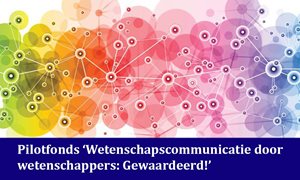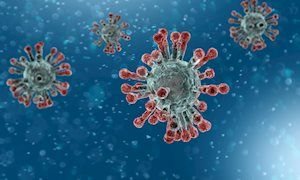
Patients who suffer brain damage may experience non-responsive wake up syndrome (NWS). This is one of the worst possible outcomes of life compatible non-born brain injury: the eyes open, breathing is independent, but there are only reflex reactions to the outside world. Specialist Elderly Medicine Willemijn van Erp received her PhD on Wednesday 4 November on her research into patients in NWS and how their chances can be improved.
In order to find out how many patients there actually are, Willemijn van Erp visited as many patients with a long-term disorder of consciousness as possible as part of her PhD research in order to map out their situation as well as possible. She visited 72 patients and examined the possible reflexes and reactions of this group. For example, a reaction to the sound of a bell can be a reflex, but following a mirror is a sign of minimal consciousness. Also voices of family members or even the presence of the dog of one of the patients were used.
No correct diagnosis
The study showed that almost eighty percent of 31 patients in the Netherlands with non-responsive wake up syndrome between 2012 and 2018 were not correctly diagnosed. Only one patient had access to specialized rehabilitation. The risk of death was high, especially in the first two years after the brain injury. In half of the patients with NWS who died, death followed the discontinuation of artificial feeding.
Vicious circle
The research shows that there is still a lot of room for improvement in the Netherlands for this small but seriously affected group of patients. There are relatively few patients here with NWS, which means that practitioners and doctors often do not have access to specialist knowledge. In her dissertation, Willemijn van Erp, affiliated with the Department of Primary Medicine, shows that a vicious circle is created for patients in NWS: a small group of severely affected patients has an unclear chance of recovery. Because it is so rare, care is organized ad hoc and on insufficient scientific grounds, which leads to misdiagnosis, few rehabilitation attempts and incomplete information of the patient's relatives. As a result, there is a risk of premature discontinuation of life-extending treatment, leaving the group of patients small, with the associated unclear prognosis.
Network of expertise AENnacoma
A correct diagnosis helps to determine whether starting a rehabilitation program makes sense. Moreover, a correct diagnosis provides valuable information about the course and the path to be followed. In order to improve care for people with serious brain damage, including long-term disorders of consciousness (LBS), the 'Expertise Network Serious Unborn Brain Injury after Coma', or EENnacoma for short, was established in 2016. EENnacoma, linked to the primary care department of the Radboudumc, now connects the previously fragmented links in the care chain for people with LBS after discharge from hospital.
The researchers expect this centralized working method and scientific research to lead to more opportunities for appropriate care for this group of patients in the coming years. In this way, practitioners will not only be supported in facilitating recovery, but also in taking responsibility if the treatment does not lead to an improvement for the patient. In this way, the best possible decision can be made for each patient at the right time, with good guidance for those closest to them.
Thesis The unresponsive wakefulness syndrome in the Netherlands: outcomes from a vicious circle by Willemijn van Erp (1985). Promoters: Prof. Dr. Raymond Koopmans and Prof. Dr. Steven Laureys (Université de Liège). Co-supervisors: Dr. Jan Lavrijsen and Dr. Pieter Vos (Slingeland Hospital).
Related news items

Participating in cancer research among people with intellectual disabilities
30 November 2021 Thanks to the support of the Maarten van der Weijden Foundation research was carried out into the participation of people with intellectual disabilities in (population) screening for cancer. go to page
General practice examines treatment and persistent complaints COVID-19 ZonMw grant for three major projects
3 August 2021 ZonMw has granted a total of 4.3 million euros for research into the treatment of COVID-19 and the symptoms that many people continue to have afterwards (Lung COVID). The research group of the department Primary and Community Care Medicine is co-applicant of these research projects. go to page
Henk Schers appointed professor of Regional Network Formation of General Practice
14 July 2021 His research focuses on innovations in the collaboration between healthcare providers from inside and outside the hospital go to page
Grants for science communication at Radboudumc
22 April 2021 Scientists at the Radboudumc have received two KNAW grants, each worth 10,000 euros, for science communication. With the new fund, KNAW underlines importance of making science accessible. go to page

